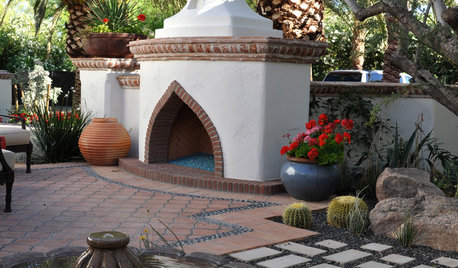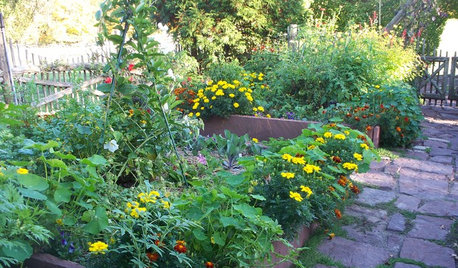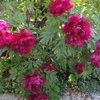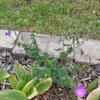You're "safe" no matter what
rusty_blackhaw
7 years ago
Featured Answer
Sort by:Oldest
Comments (19)
gardengal48 (PNW Z8/9)
7 years agoken_adrian Adrian MI cold Z5
7 years agoRelated Discussions
What's the weirdest/oddest/unique thing you're WSing this season?
Comments (150)Shore, Ha! I guess gardening can get you into more than one 'sticky' situation? And thanks for the Bday wishes! If anyone is really planning on growing all of these, well, lets just say there better be some pictures forthcoming this summer. :)...See MoreSafe2Can Tomato Sauce & Roasted Matter Soup?
Comments (7)This is one that many folks here use for canning soup. Roasted Tomato Garlic Soup for Canning Source of Recipe My own recipe * Exported from MasterCook * Roasted Tomato Garlic Soup Recipe By :Katie Serving Size : 0 Preparation Time :0:00 Categories : Amount Measure Ingredient -- Preparation Method -------- ------------ -------------------------------- 12 tomatoes -- *see Note 2 carrots -- cut in 2" pieces 1 large onion -- quartered 2 whole heads garlic -- peeled (or more, to taste) olive oil 2 cups chicken broth -- (or 3) 1/2 cup chopped fresh basil -- (or 1 Tbsp. dried) Core tomatoes and cut in half. Place, cut side up, on foil covered cookie sheet with carrots, onion and garlic. Brush with olive oil. Bake at 400F for about an hour, or until vegies are roasted and a little blackened. Place in a large saucepan with the chicken broth and basil and simmer for about 10 minutes. Blend with a stick blender (or in small batches in a blender) until almost smooth. To can: Ladle into clean hot jars and leave a one-inch headspace. Process pints 60 minutes and quarts 70 minutes. For dial gauge canners use 11 lbs. pressure at 0-2000 ft., 12 lbs. at 2001-4000 ft., 13 lbs. at 4001- 6000 ft., and 14 lbs. over 6000 ft. For weighted gauge canners use 10 lbs. pressure at 0-1000 ft. and 15 lbs. over 1000 ft. To serve: Add cream to taste when heating if desired....See MorePaperless Drywall
Comments (8)The plastic is what encourages the mould. But with 2 inches XPS against the wall, you're safe no matter what. I'd use the paper-faced as is. (I hope you placed the 2x4 plate on strips of XPS, or at least on some poly to prevent wetting by capillary rise.) I've never bothered with the paperless drywall. Just cut the regular drywall high enough above the floor to protect it against any flooding. And use a dehumidifier when necessary to keep the relative humidity no more than 45% in summer. I've seen some discussion about extra difficulties in finishing paperless drywall, but I haven't use it so can't comment on that. Here is a link that might be useful: Basement Insulation Systems...See MoreEveryone stay safe if you're in the blizzard zone!
Comments (46)Thanks, Rhizo! I sometimes feel like the King of Siam's kids who think snow is a made up thing in books (though I have seen glaciated snow in the forest, and actual glaciers). I read the posts y'all make about it and really don't understand what they mean. I just know it's dangerous and cold, so I'm glad when everybody reports in safe. I'm in Southern California, a few miles inland. We get hail every few years (which sometimes gets misidentified as snow by people who've never seen tiny hail), but not snow or any other non-rain/hail precipitation. There are mountains not that far away where it does snow, but not when I'm there (I was even in Germany in December but no snow). The closest I've been is high dessert where there were a few passing flakes. Few as in, oh, look, there's one!...See Morerusty_blackhaw
7 years agomxk3 z5b_MI
7 years agolast modified: 7 years agosally2_gw
7 years agolast modified: 7 years agomxk3 z5b_MI
7 years agoLaLennoxa 6a/b Hamilton ON
7 years agoNHBabs z4b-5a NH
7 years agolast modified: 7 years agomxk3 z5b_MI
7 years agolast modified: 7 years agoUser
7 years agogardengal48 (PNW Z8/9)
7 years agoprairiemoon2 z6b MA
7 years agolast modified: 7 years agogardengal48 (PNW Z8/9)
7 years agoUser
7 years agolast modified: 7 years agogardengal48 (PNW Z8/9)
7 years agosally2_gw
7 years agoprairiemoon2 z6b MA
7 years agolast modified: 7 years agoprairiemoon2 z6b MA
7 years ago
Related Stories

LIFE10 Ways to Keep Your Home Safe While You're Traveling
Set off on your trip with peace of mind, knowing you've taken the right steps toward keeping your home secure
Full Story
DECORATING GUIDESHow to Choose an Awesome Area Rug No Matter What Your Space
High use, a low door, kids and pets running amok — whatever your area endures, this insight will help you find the right rug for it
Full Story
REMODELING GUIDESThe Good House: Little Design Details That Matter
Tailored trim, cool counters and a nice weighty door — such details add so much to how a home feels to the people inside
Full Story
PETSThe Crate Conundrum: A Safe Place for Your Pooch
Get ideas for a comfy den for your dog that works well with your space too
Full Story
KNOW YOUR HOUSEStair Design and Construction for a Safe Climb
Learn how math and craft come together for stairs that do their job beautifully
Full Story
GARDENING AND LANDSCAPINGTake a Winter Walk on the Safe Side
Learn how to handle snow, ice and other cold-weather landscape factors to minimize falls and damage
Full Story
GARDENING GUIDESCreate a Fire-Safe Garden — With Style
Defend your home against wildfire with a well-planned mix of plants, materials and open space
Full Story
HOUSEKEEPING12 Steps to a Safe, Cozy Home for a New Year
From smoke detectors to furnace filters, let January 1 be a reminder of some must-dos around the house
Full Story
MORE ROOMSHome Tech: Speakers Matter (and Can Look Good, Too)
See why high style and high fidelity needn't be mutually exclusive
Full Story
GARDENING GUIDESOrganic Matters: Thwart Insect Pests With Trap Crops
Add a few sacrificial plants to your garden to lure insects away from the harvest
Full Story





User